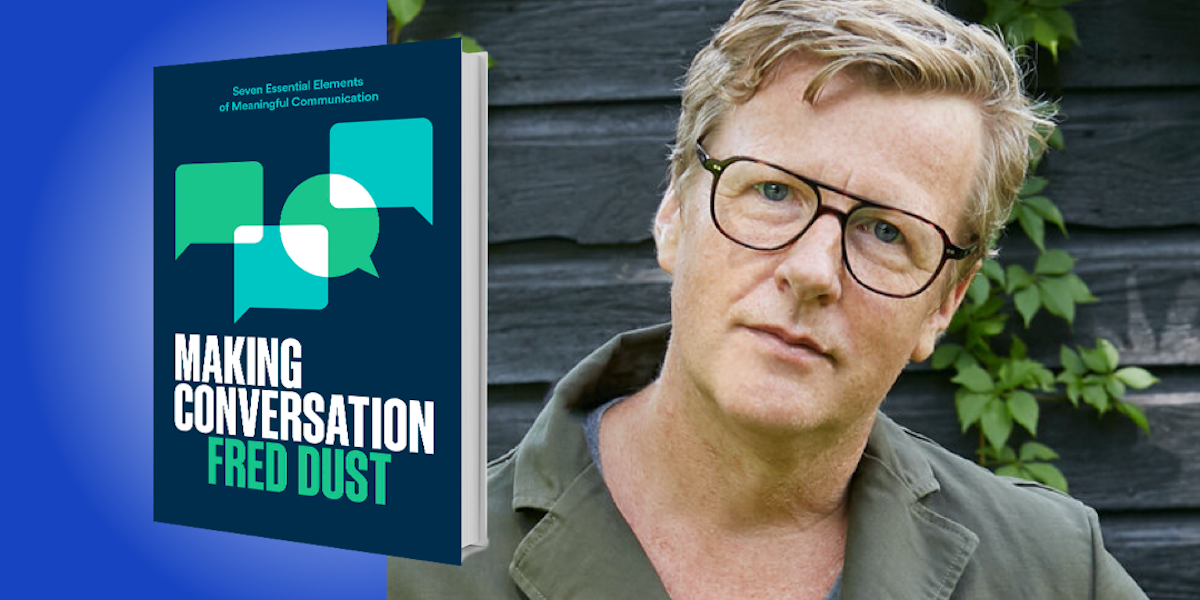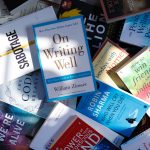Fred Dust was a Senior Partner and Global Managing Director at international design firm IDEO. A leading voice and practitioner of human-centered design and networked innovation, he helps organizations in media, finance, retail, and health confront disruption stemming from shifts in consumer behavior, social trends, economic pressures, and new technology. He also chairs the board of Parsons and sits on the board of the New School, NPR, and the Sundance Institute.
Below, Fred shares 5 key insights from his new book, Making Conversation: Seven Essential Elements of Meaningful Communication. Download the Next Big Idea App to enjoy more audio “Book Bites,” plus Ideas of the Day, ad-free podcast episodes, and more.
1. The history of humanity is one long conversation.
We were in conversation before we had words, through hand signals that helped us hunt, for example. We were in conversation with different species that allowed us to be both predators and farmers. Indeed, we may not realize how many of our interactions are conversations, but they are. And importantly, we’ve never lost the ability to have a conversation; the idea that we have is a useful myth for politicians, and it’s a super exciting news hook, but it’s false. We’re good at conversation today, and we always have been.
2. Silence is an essential component to conversation.
This may seem counterintuitive—you may remember awkward silence or moments where things feel strange because nobody’s saying anything—but silence gives us all kinds of amazing things. It lends space for listening to other people, and space for us to listen to ourselves. Think about pausing for a moment when somebody says something, and really reflect on how that made you feel. Silence can be a powerful tool. And the psychology of creativity suggests that silence actually helps fire connections in our brains, and allows us to combine things into amazing new ideas. It’s one of the reasons we often have our greatest insights while we’re taking quiet walks, or while we’re in the shower. Those are moments of silence, when we’re listening to ourselves and finding new connections.
“Silence can be a powerful tool.”
3. Get good at naming.
Names really matter; you wouldn’t put your kid out into the world without naming them, would you? And the reality is that by naming your child, you’re naming the intention that you have for that child in the world. That’s why, at least in Christian cultures, we don’t have that many Cains or Abels—those aren’t the names we necessarily want our children to be carrying. In the same way that you would name your child, think about naming the things that really matter to you—the love you have for somebody, or an idea that’s important. Keep in mind that good names have strong visual components to them; they allow you to see what they’re describing. So I recommend that you get thoughtful about the language you’re using when it comes to naming.
4. Notice change.
I live on a farm where I walk our land almost every day. When you do that, you notice subtle changes in the landscape that you wouldn’t notice otherwise. Sometimes the landscape has shifted faintly from yellow to bluish yellow, from bluish yellow to green—or right now to white, because it’s very cold outside. Likewise, when you’re making and creating conversations, practice noticing when a change has happened in that conversation. People who are good at noticing change can help conversations move forward and become better.
“Practice noticing when a change has happened in that conversation.”
5. When in doubt, make.
In the same way that even preverbal societies were able to communicate, when you’re in conversation, working side-by-side with your mom under the hood of a car, or quilting with your dad, you are connecting in ways that you never might when you’re speaking. Making is one of the most important things we do in our lives. And for many of us who think of ourselves as introverted or somewhat nervous about making conversation, you might think about just going for a walk with someone side by side.
For more Book Bites, download the Next Big Idea App today:
































